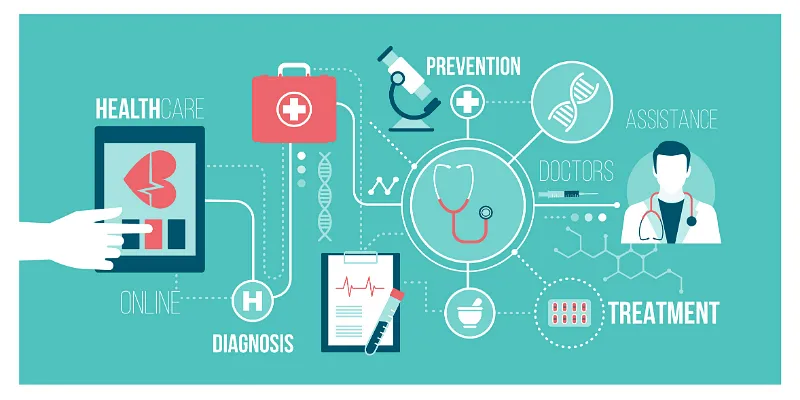Shortage of healthcare workers globally may rise to 10M by decade-end: WEF study
The report said the rise in healthcare spending has fast-tracked progress in telehealth, vaccines, and precision medicine, but businesses and policy-makers must tackle worker burnout and boost access to health.
The shortage of healthcare workers globally could rise to 10 million by the end of the decade, affecting access to care, inequities, and treatment of mental health, a new report said on Monday.
Launched in the run-up to the World Economic Forum (WEF) Annual Meeting 2023 in the Swiss ski resort town of Davos, the report said the rise in healthcare spending has fast-tracked progress in telehealth, vaccines, and precision medicine, but businesses and policy-makers must tackle worker burnout and boost access to health.
It also cited a case study from India, the Ayushman Bharat Digital Mission (ABDM), launched by the Union Ministry of Family and Health Welfare, to enable the world's largest digital health landscape.
"Given ABDM is envisioned to digitise the entire healthcare environment in the country, its success relies on its adoption by all players.
"Thus far, the adoption of ABDM has been a key challenge, which has been limited and staggered mainly due to data interoperability, confidentiality, and connectivity to the internet and lack of digital infrastructure," it added.

The report, titled 'Global Health and Healthcare Strategic Outlook', further said that the fastest vaccine development in history demonstrated the enormous potential of public-private partnerships and outcomes-based regulation.
"The pandemic brought remarkable progress in the development and delivery of medicines. We now need to focus on long-term system change to stop health services deteriorating in the face of economic crises," said Shyam Bishen, Head of Health and Healthcare at the WEF.
The report, prepared with LEK Consulting, is likely to be discussed further by leaders at the WEF Annual Meeting 2023 in Davos from January 16-20.
It noted that the pandemic's disruptions, such as a 25 % drop in coverage of essential health services, resulted in compound impacts on vulnerable populations and minority communities, especially in low- and middle-income countries.
"More specifically, COVID-19 put extra strain on healthcare systems, disrupted global supply chains of essential products and pushed overburdened care providers to breaking point," the WEF said.
"The threat of violence and burnout are real, and is one of the contributors as to why doctors are considering other professions," said Kashish Malhotra, Physician from the Department of Internal Medicine, Dayanand Medical College and Hospital.
To improve access and narrow the global health disparity gap, the report urged healthcare leaders to allocate funds disproportionately towards alternative care models and to include more representative clinical trials across low-to middle-income countries.
Noting that the pandemic demanded emergency responses, the report said medical triumphs are too often reactive 'cures' to the communicative zoonotic diseases that could have been prevented at far lower costs.
"To preserve health and save lives, a higher return on investment comes from clean air, safe water, and healthy biodiversity," it added.
Edited by Suman Singh








